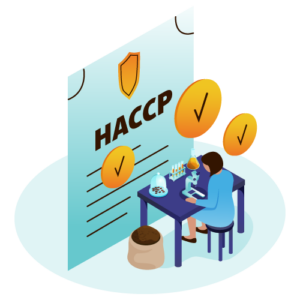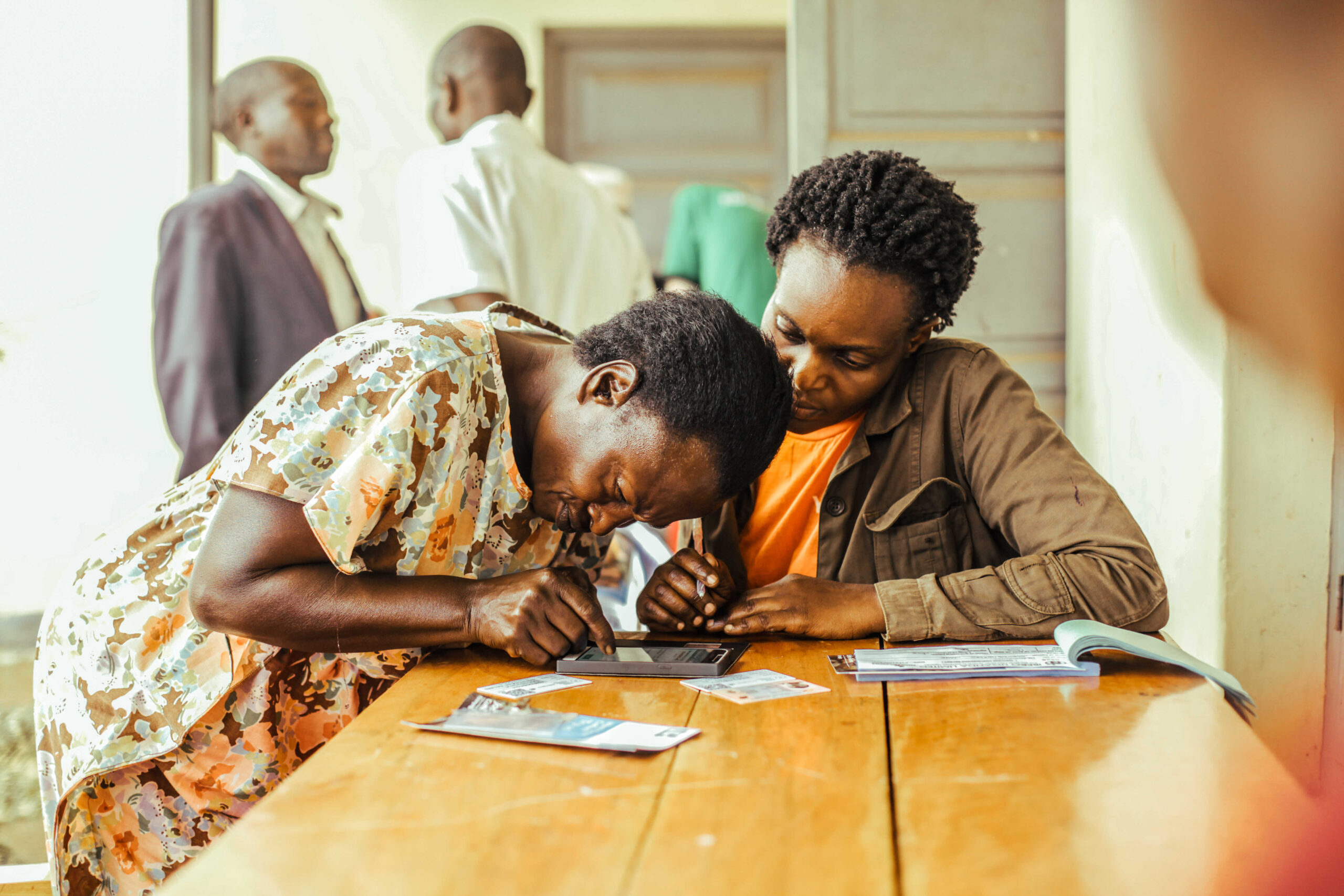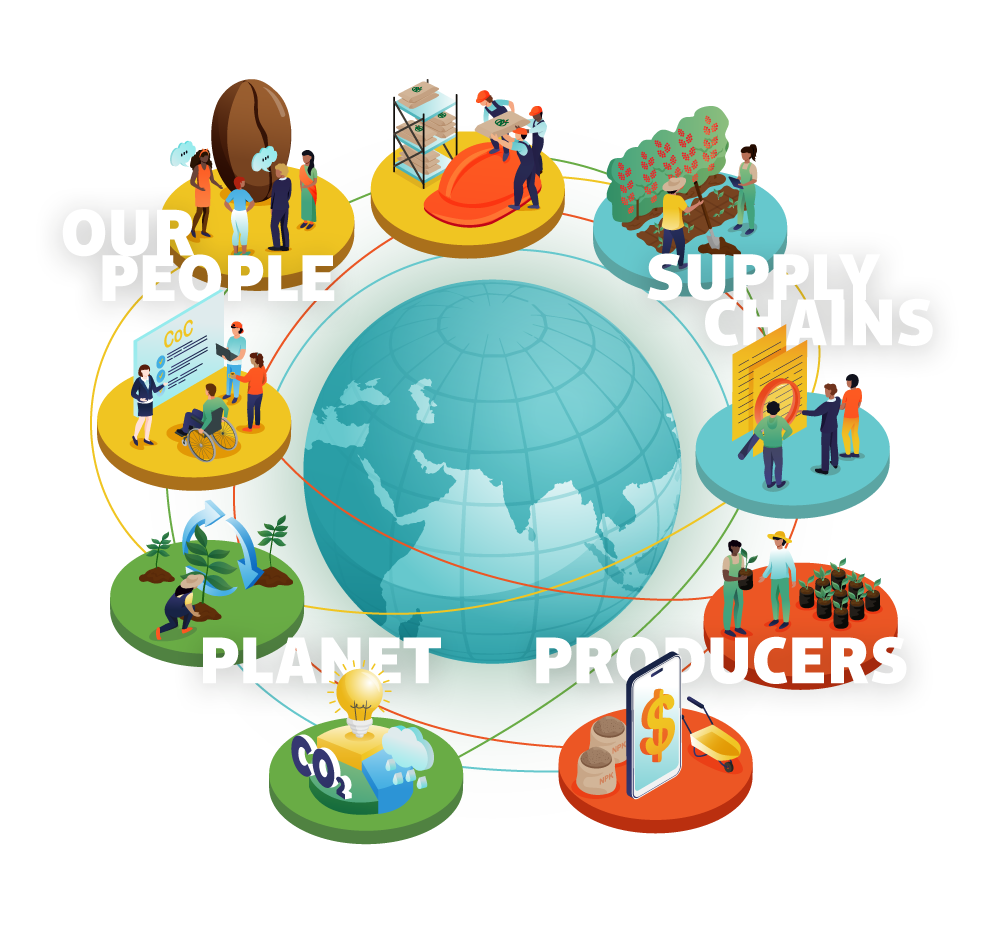Supply Chains

5
IMPROVE TRANSPARENCY AND ETHICAL CONDUCT IN COLLABORATION WITH DIRECT SUPPLIERS
A key objective of our Responsible Business Program is to work collaboratively with our direct business partners to elevate overall social and environmental practices along the coffee supply chain. This includes robust due diligence approaches that encompass multiple topics like human rights and food safety.
Through our Supply Chain Integrity Program (SCIP) we uphold ethical standards by systematically assessing human rights risks and impacts. Additionally, our comprehensive food safety approach sets rigorous standards across our supply chains to ensure transparency and maintain product integrity. Both SCIP and our food safety system underscore our commitment to sustainable practices and responsible corporate governance, which benefit our suppliers and customers alike.
SuppLY chain integrity Program
In 2022, we announced the implementation of our Supply Chain Integrity Program (SCIP). The goal of SCIP is to enable NKG to meet supply chain due diligence requirements through a risk-based management approach, thereby ensuring economic viability. The SCIP project was started with a pilot phase in five of our major coffee origins: Brazil, Colombia, Honduras, Vietnam and Uganda. Since implementation, we have discovered some key learning and improvement areas for the project, alongside foundational components that are already working well and are ready for a broader roll-out soon. We are now working on getting all of the elements that feed into SCIP into robust enough shape to scale up and roll out the full program in a targeted, pragmatic and timely manner.
Assessing Risks
As we navigate complex global supply chains and diverse operational landscapes, conducting thorough human rights risk assessments emerges as a crucial step towards ensuring ethical integrity and sustainability. Through our assessments, we aim to systematically map potential human rights risks in multiple coffee-sourcing regions in order to prepare and respond to them by means of targeted activities or processes.

To ensure a broad scope and a deep level of detail in terms of assessment, we utilize an approach with two pillars: At base level, we conduct a comprehensive, country-level desk analysis of all coffee origins based on publicly available data and media reports. Risks detected through this process are helpful in identifying topics of interest in each region, but remain too high-level to constructively define improvement measures by themselves. We therefore follow up with a second pillar, performing on the ground, in-depth Human Rights Impact Assessments that provide a better understanding of potential and actual risks in our supply chains. In-depth impact assessments have been carried out in Brazil, Colombia, Honduras, Vietnam and Uganda by experienced and independent external consulting teams.
Responding to identified risks through targeted remediation measures is undoubtedly the most important step in any risk assessment process. Due to the systematic nature of most human-rights risks in the coffee supply chain, NKG recognizes that remediation measures we undertake in isolation will only generate very localized and narrow levels of impact. We have therefore reinforced our commitment to pre-competitive collaboration as a key tool for creating scalable and sustainable positive change.
ILO Child Labour Platform
Given the multi-dimensional nature of child-labor risks and the complexity of global supply chains, addressing child labor effectively requires collaboration among multiple stakeholders.
This is why, in 2023, we became a member of the ILO Child Labour Platform (CLP), by joining efforts to address the root causes of child labor through the inter-agency project “Ending child labour in supply chains: Addressing the root causes of child labour in supply chains through an area-based approach (CLEAR Supply Chains)”.
The CLP is a cross-sectoral membership-based alliance of companies led by the ILO, with the objective of encouraging stakeholder exchanges, identifying obstacles in the implementation of ILO Conventions and strengthening cooperative programs against child labor.
In partnership with the European Union (EU), the Food and Agricultural Organization (FAO), the International Trade Centre (ITC) and the United Nations Children’s Fund (UNICEF), the ILO leads the CLEAR Supply Chains project that started in 2023. The project primarily targets the coffee supply chains in Honduras, Uganda and Vietnam, in which NKG also has business activities.
Its aim is to develop integrated and replicable intervention models to tackle the root causes of child labor, through collaboration with companies from the coffee industry, UN agencies, key global and regional coffee networks, employer and worker organizations, civil society organizations, and other key stakeholders.
Continuous development
The findings from our risk assessment, as well as from the implementation process, have enabled us to further tailor and improve the program, to become more accessible, scalable and integrated with other processes and projects within the group. An important lesson from the pilot phase was the need for a robust underlying digital system to facilitate the aggregation of data, contact with suppliers and to streamline workflows into one place – be it the signing of our Supplier Code of Conduct, supplier questionnaires, due diligence screenings, or the management of improvement plans. NKG is therefore now implementing osapiens as a tool for all human rights and environmental due-diligence requirements, with the aim of greatly improving both the scalability and effectiveness of SCIP.
We also remain keenly aware of the need to revise smaller details of the program, especially at direct points of contact with our suppliers who are the heart of this effort. Based on feedback from our key suppliers, we are working on making our supplier self-assessment more accessible from a technical and language perspective. We are also revising our Supplier Code of Conduct as necessary, to ensure that its contents accurately reflect our expectations. The latest update from 2024 can be found right here:

NKG Supplier Code of Conduct
Click the buttons below to download the NKG Supplier Code of Conduct.
Food Safety
To improve cooperation with direct suppliers and increase transparency we invest significant effort and care into ensuring product safety. NKG is addressing this task by proactively supporting individual subsidiaries by means of the synergetic strength of the group.

A critical component for controlling transparent quality-assurance parameters is the uniform set of NKG Food Safety conditions. Adopted in 2023, this new set of rules allows NKG to establish individual requirements that, in many cases, exceed legal standards. It enables us to harmonize environmental protection, quality, and customer satisfaction as supplier requirements.
In terms of environmental sustainability, our top priority is to identify and minimize the risks of food waste. Collective knowledge at NKG complements the individual Hazard Analysis of Critical Control Points (HACCP) concepts of our companies. Each company develops its own risk assessment and action plan to protect coffee from non-compliance and potential food waste.
We have been steering a group-wide strategy to screen against contaminants through this risk-based approach since 2021. This screening enables us to proactively identify trends and risks while providing early-stage information in production countries. Through this level of data transparency, we have made a significant impact in the Global Coffee Platform (GCP) initiative. In 2022, we contributed to an official ban on glyphosate in Vietnam based on targeted field studies and data collections. As a result, the presence of the active substance glyphosate in Vietnamese coffee has now been reduced. This outcome is a positive step towards the conservation of various species and types of biodiversity.
Moreover, we continually update our global network with the latest information and changes regarding approved and banned active substances. This allows us to leverage synergies within the NKG supply chain to directly influence coffee-producing countries.
Food safety culture is practiced at all stages of our supply chain. Because we regard knowledge as a valuable asset and hold interest in our unique product, we offer diverse employee training programs. These include individual training sessions on product safety, process risks, contaminants, and allergens that are harmful to health, making our employees aware of their responsibilities through positive and contemporary exchange formats.

What's next?
Because SCIP is an important part of our roadmap to comply with the EU Deforestation Regulation (EUDR), we have prioritized the roll-out of our updated Supplier Code of Conduct to all European suppliers. In 2025, we will successively extend this roll-out to all remaining suppliers together with our self-assessment questionnaire. In-depth human-rights risk assessments will be carried out continuously at origin level.
RELATED
sustainable
development
goals
